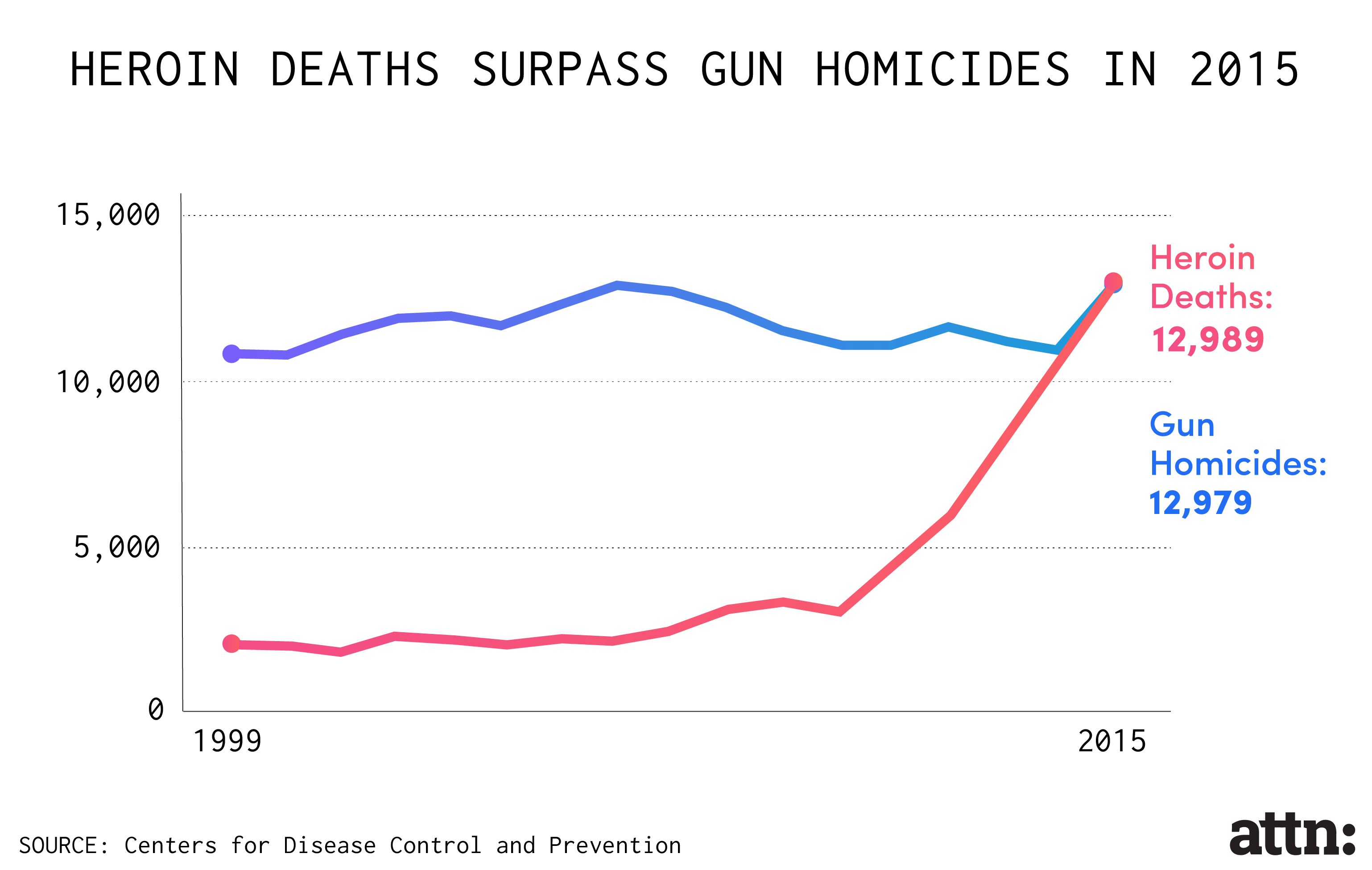Trump Is Slashing Fundings for the Agency Fighting the Opioid Crisis

By:
The Trump administration plans to effectively eliminate a federal agency that's dedicated to reducing drug abuse in the United States, slashing the budget for the Office of National Drug Control Policy (ONDCP) by almost 95 percent, according to a memo obtained by CBS News.
Reactions have been mixed.
NEWS: WH to slash the Office of National Drug Control and Policy budget by nearly 96%, according to a memo obtained by @CBSNews
— Jacqueline Alemany (@JaxAlemany) May 5, 2017
Excerpt of Acting Director Richard Baum's email to @ONDCP44 staff: "These drastic proposed cuts are frankly heartbreaking" pic.twitter.com/RepKPCVmZp
— Jacqueline Alemany (@JaxAlemany) May 5, 2017
You might think marijuana legalization advocates would be celebrating the development, as the ONDCP has historically disrupted efforts to reform state and federal marijuana laws. The office spent about $1.4 billion on an ineffective anti-marijuana advertising campaign from 1996 to 2006, for example, targeting teens with sensationalized depictions of cannabis use.
But even drug reform advocates are torn over the proposed cuts.
 AP Photo/Rick Callahan
AP Photo/Rick Callahan
Under the Obama administration, ONDCP leadership shifted the agency's focus away from marijuana, instead allocating more resources to tackle the opioid epidemic. ONDCP also embraced policies that treated drug use as a public health issue, rather than a criminal justice issue, said Drug Policy Alliance deputy director of national affairs Grant Smith."
"We saw how ONDCP can have utility in terms of advancing public health objectives," Smith told ATTN:, "working across agencies to improve access to treatment, to utilize federal resources in ways that can help reduce overdose, reduce harms associated with substance abuse.," Smith said. However, "that all depends on who is in that position and the administration."
Without the ONDCP, it's unclear what department would be responsible for directing federal policy with respect to the opioid crisis. This comes at a time when opioid-related overdoses have reached a record high, killing about 33,000 Americans in 2015, according to the Centers for Disease Control and Prevention (CDC).

Rather than cripple it with budget cuts, the Trump administration should take steps to reform the agency, Smith argued, such as promoting harm reduction policies, including increased access to the anti-overdose medication naloxone and increased funding for treatment centers.
Tom Angell, founder of the legalization advocacy group Marijuana Majority, told ATTN: he has "mixed feelings" about the cuts.
"If you believe in a robust federal government that can tackle important issues, it probably makes sense to have an office focused on the real problem of substance abuse," Angell said. "But, historically, ONDCP has been ideologically driven and done a very bad job at fulfilling its mandate — and it has spent so much time and resources trying to block marijuana reforms."
"It remains to be seen what the full impact of a cut would be if it gets through Congress."
Not everyone thinks ONDCP's work on opioids is all that good, either.
Kathleen Frydl, an assistant professor of history at the University of California, Berkeley, who previously worked with at the agency, tweeted on Friday that she was "quite happy to see the ONDCP go." Characterizing the office as "effective on opioids is a terrible take," she wrote.
folks, i'm quite happy to see ONDCP go. it was PR& palliative
— Kathleen J Frydl (@kfrydl) May 5, 2017
exempted from executive standards of science
when i worked as staff at NAS for "Informing US Policy in Illegal Drugs," which found the emperical basis for drug prohibition to be shit,
— Kathleen J Frydl (@kfrydl) May 5, 2017
some ONDCP lackeys threatened to sue.
— Kathleen J Frydl (@kfrydl) May 5, 2017
screw them.
no more smiley faces on the drug war
folks, i can't tweet rn, but to present ONDCP as present & effective on opioids is a terrible take
— Kathleen J Frydl (@kfrydl) May 5, 2017
After Frydl submitted research on the effects of drug prohibition, conducted while at the National Academy of Sciences, she alleged that her findings were dismissed and that officials at the agency "threatened to sue." The study found no "empirical basis for drug prohibition," she wrote.
In a 2013 interview with The Washington Post, Frydl said that "[r]ace and class bias created and sustained the drug war."
The White House did not respond to requests for comment by the time of publication.
In a statement to CBS News, a spokesperson said that the "budget process is a complex one with many moving parts" and that it'd be "premature for us to comment — or anyone to report — on any aspect of this ever-changing, internal discussion before the publication of the document."
